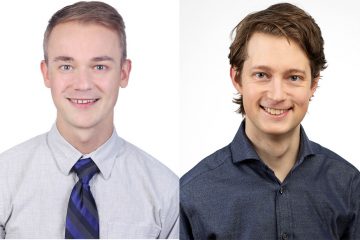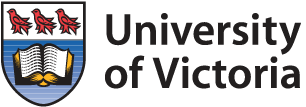Academic conferences give medical students an opportunity to network with peers, keep up with the latest research in their field of interest, and present their own work. In this article, you’ll meet three of the IMP students who presented their research and held workshops at conferences around the world during the 2018/19 school year.

Alex DeGrace (IMP Class of 2021)
Alex DeGrace (IMP Class of 2021)
Which conferences did you attend?
Consortium of Universities for Global Health—March 8-10, 2019; Chicago, USA
Global Health & Innovation Conference—April 13-14, 2019; Yale University, USA
What did you do at the conferences?
I presented my research project “Nutritional analysis among school-aged children in a remote Himalayan community: Assessing deficiencies and identifying barriers to improvement.”
Could you give a brief overview of your research?
The India Spiti Health Project is a longstanding partnership between Munsel-ling Boarding School and UBC’s Global Health Initiative. In 2018, a nutrition analysis was conducted as part of this project to assess the diet of the students at Munsel-ling and identify areas for improvement. While the nutrition analysis was conducted as part of the India Spiti Health Project, the analysis itself was a new FLEX project I designed with the help of my colleague Justin Dragoman in the SMP and an expert consultant, Sanja Brkanovic, who conducted a previous analysis in 2009. It was not a continuation of that previous analysis, however; it was a stand-alone research initiative with unique methodology.
Being involved in global health gives me an opportunity to connect my interest in global issues with my medical education. I think as physicians in training, it is important to be cognizant of things like environmental degradation and humanitarian crises, and to do what we can to be a part of a global solution. Many things that happen globally affects us at home, too, so being a part of these wider conversations and solutions and developing skills by working in global health is also relevant to care in Canada.
Can you describe one of your presentation experiences?
I presented to a small group for six minutes as part of the Consortium of Universities for Global Health (CUGH) program on Saturday, March 9th. CUGH is a large conference with thousands in attendance, and it was exciting to network with others working in this field and learn more about global health through various conference presentations.

(L-R) Sergiy Shatenko and Samuel Harder (IMP Class of 2019)
Samuel Harder and Sergiy Shatenko (IMP Class of 2019)
Which conference did you attend?
Canadian Conference on Medical Education—April 13-16, 2019; Niagara Falls, Canada
What did you do at the conferences?
We presented our project “Why you should Mini Med School: Mini Med School as an intervention to improve health literacy.”
Could you give a brief overview of your project?
Sergiy: This presentation is based on the work we did for our second year FLEX project, which is currently pending publication. The project consisted of putting on a Mini Med School course consisting of six lectures for local retirees and measuring the impact of this intervention on health literacy scores in this population. The six lectures focused on topics that often come up in primary care. More specifically, we talked about disease prevention, navigating the healthcare system, understanding medical testing, brain health, heart health.
Samuel: We had 60 people come to a lecture every Saturday at the Medical Sciences Building for six weeks. Our question was to see if this could improve health literacy. Health literacy has an increasingly recognized importance. It is the skills you need to interpret health information and make health decisions. We know that the prevalence of low health literacy is high in Canada and the consequences of that are poor health and more expenses to the healthcare system. We had participants fill out a health literacy survey before the Mini Med School lecture series started and then again six weeks later. Because of the way our statistics worked, we can say that there was a statistically significant increase in the likelihood of improved health literacy.
Can you describe your presentation experience?
Samuel: I was really looking forward to an opportunity to present our work. It is really hard to get published and we have yet to be successful, so this is one way to get our results out there. I also felt pretty proud to represent UBC and the IMP particular at a national conference. We’re proud of what we did.
Sergiy: We were extremely excited to have the opportunity to present our work and believe that there is a lot of benefit in the Mini Med School concept for the students, the medical school, and the community. We learned a lot of valuable skills during the creation and delivery of the lectures and felt that we provided valuable community outreach on behalf of the medical school.
